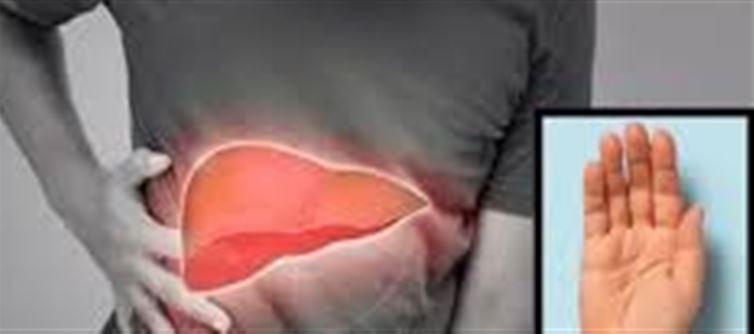
The liver is a vital organ responsible for detoxification, metabolism, digestion, and hormone regulation. Interestingly, certain changes in your hands can act as early warning signs of liver problems. Here’s what to look out for.
1. Yellowing of the Skin and Nails (Jaundice)
One of the most common indicators of liver issues is jaundice. If your hands or nails appear yellowish, it could be due to buildup of bilirubin, a substance the liver normally processes.
What to do:
Seek medical advice promptly. Jaundice can indicate hepatitis, cirrhosis, or other liver dysfunctions.
2. Swelling in the Hands
Fluid retention, particularly in the hands and fingers, can be a sign of liver problems. The liver’s reduced ability to produce albumin may lead to swelling or edema.
What to do:
Notice persistent swelling and consult a doctor for liver function tests.
3. Redness on the Palms (Palmar Erythema)
Red, flushed palms, especially on the thenar and hypothenar regions, are a classic liver-related symptom. This occurs due to changes in blood circulation and hormone levels caused by liver dysfunction.
What to do:
Monitor for other symptoms such as fatigue, itching, or abdominal swelling.
4. Spider Veins or Tiny red Lines
Small, spider-like veins on the hands may indicate cirrhosis or chronic liver disease. These appear due to hormonal imbalances and poor blood clotting linked to liver issues.
What to do:
Get a full liver health check-up to rule out serious conditions.
5. Unexplained Itching or Dry Skin
Liver problems can lead to bile buildup, causing itching and dryness in the hands and other areas. Though subtle, persistent symptoms shouldn’t be ignored.
What to do:
Hydrate well, avoid harsh soaps, and consult a doctor if itching persists.
6. When to Seek Immediate Medical Attention
· Sudden yellowing of skin or eyes
· Severe hand swelling
· Intense itching with fatigue
· Unexplained bruising or bleeding
Bottom Line
Your hands can provide early clues to liver health. While minor changes may be harmless, persistent yellowing, redness, swelling, or spider veins should prompt a timely medical evaluation. Early detection and lifestyle adjustments—like reducing alcohol, eating a balanced diet, and regular exercise—can protect liver function and prevent serious complications.
Disclaimer:
The views and opinions expressed in this article are those of the author and do not necessarily reflect the official policy or position of any agency, organization, employer, or company. All information provided is for general informational purposes only. While every effort has been made to ensure accuracy, we make no representations or warranties of any kind, express or implied, about the completeness, reliability, or suitability of the information contained herein. Readers are advised to verify facts and seek professional advice where necessary. Any reliance placed on such information is strictly at the reader’s own risk.




 click and follow Indiaherald WhatsApp channel
click and follow Indiaherald WhatsApp channel